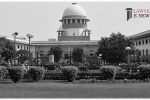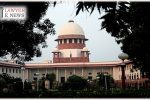Supreme Court Acquits Four in 2007 Murder Case Citing Lack of Corroborative Evidence and Doubts in Dying Declaration

In a significant judgment, the Supreme Court of India has acquitted four individuals convicted of murder in 2007. The bench, comprising Justice Abhay S. Oka and Justice Pankaj Mithal, overturned the previous rulings of both the Session Court and the High Court, which had sentenced the accused to life imprisonment under Section 302 read with Section 34 of the Indian Penal Code (IPC).
The case pertains to the murder of Pappu alias Rajendra Yadav, which occurred in 2007. The prosecution’s case was primarily based on an oral dying declaration made by the deceased to his family members and the testimony of an eyewitness, Rahul Yadav (PW-13). However, the Supreme Court raised substantial doubts regarding the reliability of this declaration and the eyewitness testimony.
The Court observed that the medical evidence suggested that the deceased’s injuries were severe enough to cast doubt on his ability to make a dying declaration. Additionally, the testimony of Rahul Yadav (PW-13) was scrutinized due to his criminal background and absence from the scene in initial accounts. The Supreme Court highlighted the need for corroborative evidence to support such declarations, which was lacking in this case.
The judgment also noted that other eyewitnesses, who were initially claimed to have witnessed the incident, were declared hostile and their testimonies were found to be unreliable.
In their ruling, the Justices emphasized the importance of extending the benefit of doubt to the accused in cases where the prosecution fails to establish guilt beyond reasonable doubt. “We are conscious of the fact that the appellate court should be slow in interfering with the conviction recorded by the courts below but where the evidence on record indicates the prosecution has failed to prove the guilt of the accused beyond reasonable doubt… the appellate court should not shy away in giving the benefit of doubt to the accused persons,” the judgment read.
Following this judgment, the accused have been acquitted, and their bail bonds have been discharged, marking a significant turn in a case that has spanned over a decade and a half.
Date of Decision: January 5, 2024
JITENDRA KUMAR MISHRA @ JITTU VS THE STATE OF MADHYA PRADESH






